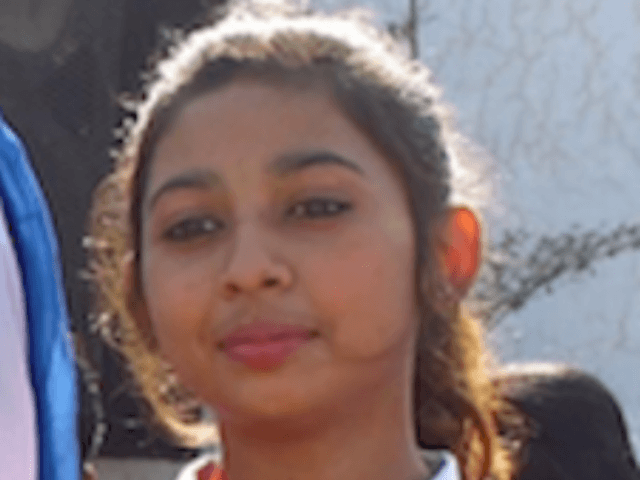A court in Pakistan ruled on Tuesday that 14-year-old Christian girl Maira Shahbaz voluntarily converted to Islam and is legally married to an older Muslim man named Mohamad Nakash, even though Maira and her family say Nakash kidnapped her at gunpoint with two accomplices during the coronavirus lockdown in April.
If the ruling stands, Maira will be forced to return from the shelter where she is staying to the home where she was held hostage.
Witnesses say Maira was walking home on April 28 in the town of Madina when Nakash and two accomplices forced her into a car, fired several gunshots into the air, and sped away.
When her family reported the kidnapping, Nakash produced a “marriage certificate” that listed the girl’s age as 19, even though her family has a birth certificate proving she is only 14. The certificate listed the date of the marriage as last October, six months before Nakash abducted Maira. The Muslim cleric who ostensibly signed the birth certificate denied any involvement in the “marriage” when questioned.
In July, the Shahbaz family prevailed upon the top cleric of a local mosque to issue a fatwa (religious edict) that Nakash’s marriage certificate was invalid. Human rights activists supported the family by pointing out that not only was the imam’s signature on the document fraudulent, but Nakash was already married to another woman not mentioned on the document.
Polygamy is legal but regulated in Pakistan, and one of the regulations is that existing wives must give written approval for additional marriages.
Marriage to girls under the age of 16 is technically illegal, but activists complain the Child Marriage Restraint Act is not vigorously enforced and often set aside in favor of Islamic sharia, which allows girls to be married off once they experience their first menstrual cycle. The United Nations rates Pakistan as one of the worst countries in the world for child brides, with some 3 percent of girls wedded before the age of 15.
Pakistan has a law against forced religious conversion that stipulates a minimum age of 18 for changing religions without parental consent. This law also encounters resistance from Islamists who cite sharia and Muslim historical precedents for young children converting to Islam.
Despite the family’s efforts, it was not until the end of July that a district court ruled Maira could leave Mohamad Nakash’s custody and move to a shelter for women, pending the outcome of her case.
Stunned witnesses to Tuesday’s ruling in Lahore High Court said Maira was present and wept when the verdict was announced. Judge Raja Muhammad Shahid Abbasi overturned last week’s ruling, ruled both Maira’s conversion to Islam and her marriage to Nakash were valid, and ordered her returned to his custody.
“It is unbelievable. What we have seen today is an Islamic judgement. The arguments we put forward were very strong and cogent,” said Maira’s lawyer Khalil Tahir Sandhu.
“I became so upset as the proceedings went on, I feared I might be asked to leave the courtroom,” he added, vowing to appeal the decision all the way to the Supreme Court of Pakistan.
Sandhu, himself a Christian, was formerly Punjab’s minister for human rights and minority affairs. When he filed his appeal to the Lahore High Court in June, he said he would bring the Maira Shahbaz case before the Punjab Assembly.
“What motivates me is my faith in Jesus and I am reminded of the Gospel passage where Christ reveals how he has been sent to set the captives free,” he said at the time.
The Shahbaz family has reportedly had little contact with Maira since she was kidnapped. According to Sandhu, Maira’s mother Nighat Shahbaz collapsed and was treated to a heart attack when seeing her for the first time since her abduction at a May court hearing. Nighat Shahbaz refused to speak with reporters after the Lahore High Court ruling.
“Around 1,000 Christian and Hindu women are abducted each year in Pakistan and typically forced to convert to Islam,” the UK Telegraph said on Wednesday, quoting the Movement for Solidarity and Peace. Christians make up about two percent of Pakistan’s population.

COMMENTS
Please let us know if you're having issues with commenting.